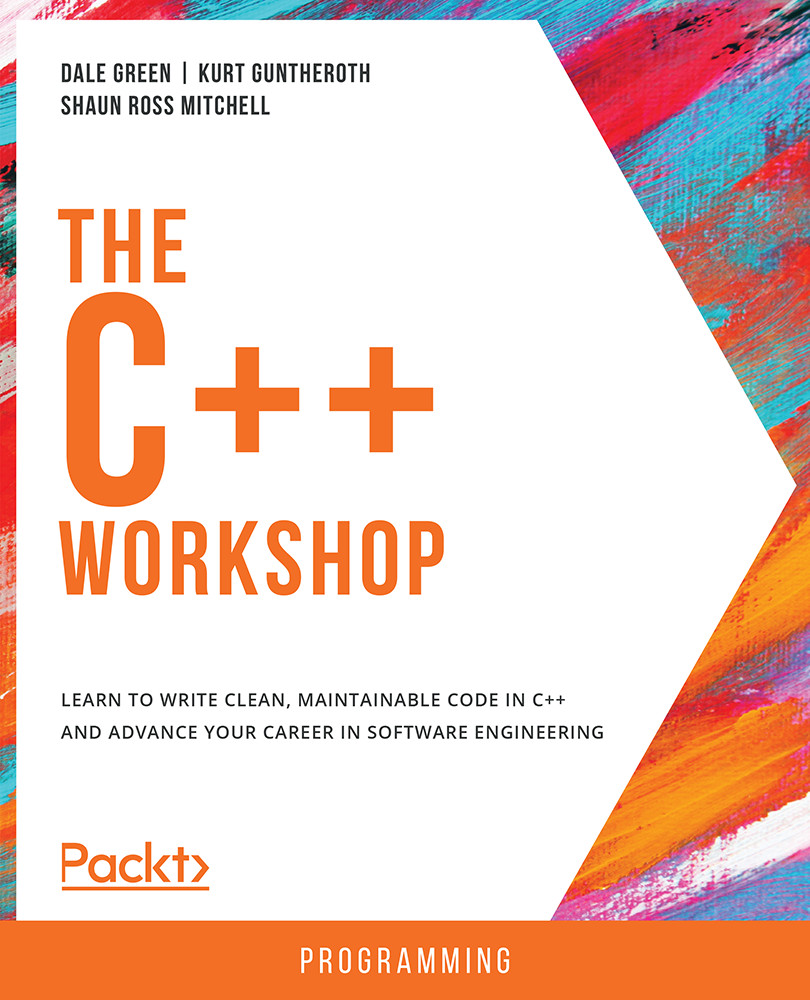-
Book Overview & Buying

-
Table Of Contents

The C++ Workshop
By :

The C++ Workshop
By:
Overview of this book
 Free Chapter
Free Chapter
 Sign In
Start Free Trial
Sign In
Start Free Trial


 Free Chapter
Free Chapter
Now that we've looked at some of the built-in data types provided by C++, let's take a look at a couple of containers—objects that allow us to store multiple elements together. They come in many shapes and sizes depending on what data you're storing and how you wish to do so. For this early chapter, we're going to be focusing on two fundamental containers—arrays and vectors. Not all languages provide these types; Python, for example, has neither but provides lists instead. With C++, however, we're spoiled for choice. The standard library contains a myriad of collections to suit our needs, but these two are the ones we'll be focusing on in this chapter.
Arrays are containers of objects, so instead of storing a single value in a variable, we can store many of them. These all sit next to one another in memory, so we access them through a single variable and an index. When we declare an array, we need to know its...
